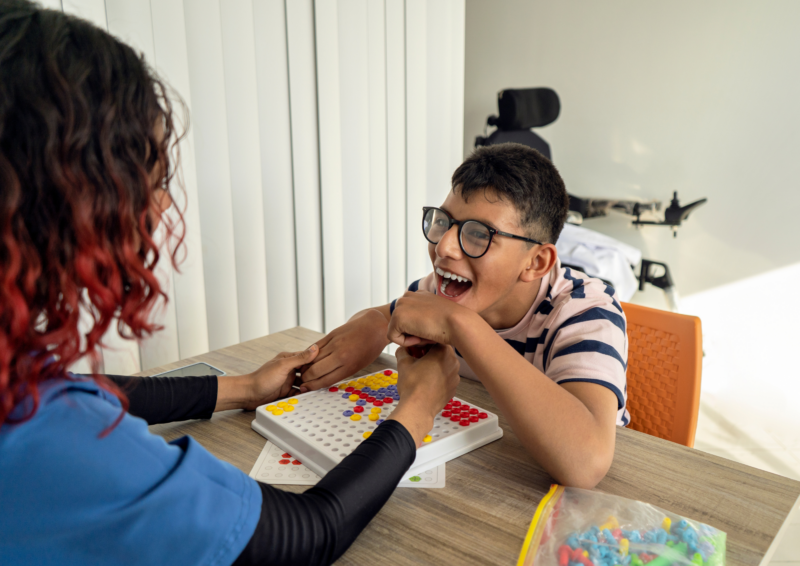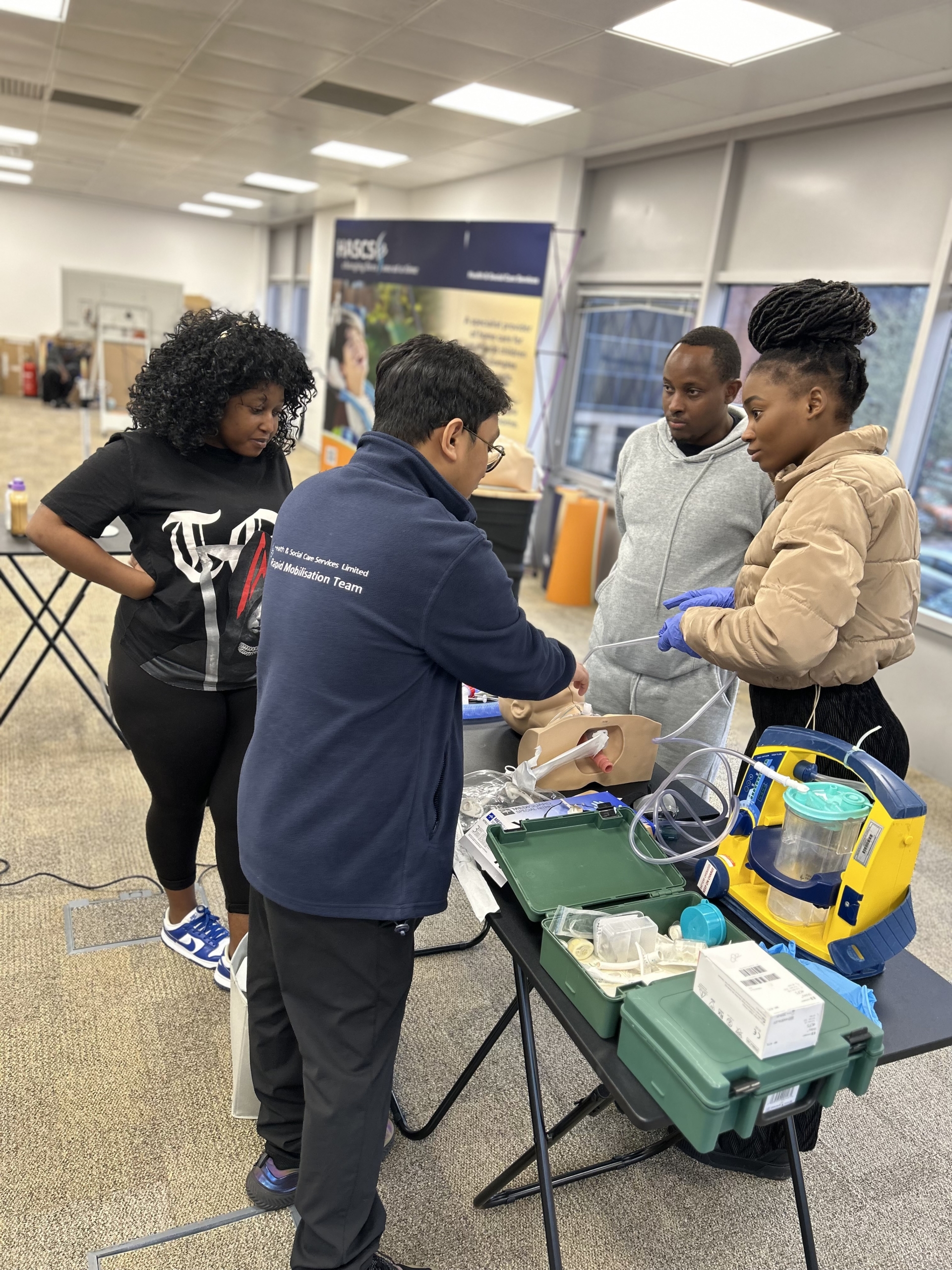Multi-Sensory Impairment
Our senses help us experience the world and form our reality. People with multi-sensory impairment (MSI) experience both sight and hearing loss, this is sometimes called deafblind. Sight and hearing are our distance senses that give us crucial information on what’s happening around us.

How the senses work together
As well as our distance senses (sight and hearing), we have our close senses, touch, taste, and balance. They give us information on what’s happening within arm’s reach. When one distance sense is impaired, information from the other can be used to compensate, for example, a deaf person lip-reading.
People with MSI are also likely to have impairments of other senses, they may have poor balance, limited movement, under-sensitive or over-sensitive touch or an impaired sense of smell. Those with MSI’s will get as much information as possible from their other senses, for many touch will become a way of learning and communicating.

Latest insights
Apprenticeships: Our investment in the complex care industry
Our stories
From Healthcare Assistant to Registered Nurse with HASCS
Your kind words
Your work ethics and the vision of your company is what it should be. You clearly love what you do and the team have so much respect for your hard work. You all will always be our family.
Family of client | South West, UK
Your kind words
Health & Social Care Services Ltd have made such a huge difference to our family’s quality of life. After many years of continuous stress and battling to get the care that our disabled son desperately needed, to have an acceptable quality of life – it feels like we have suddenly ‘landed’!
Family of client | South West, UK

Our stories
Children’s Care to Adult Care: A Path to Independence
Latest insights
New to Complex Care? A Comprehensive Guide for Beginners
Complex Care Solutions
Making sense of the world
We are here to help, from personal care to social, cultural and educational support and community integration.
Early Years and School Years
Support during the early years – often called ‘early intervention’ – has been proven to boost early development. Yet, while we know how important this early support is, many children with a learning disability are not receiving the support they need. We can work alongside multidisciplinary teams to help a child with a learning disability receive the support they deserve.
Into adulthood
We understand that supporting young people through their transition from children’s care to adult care is key to a successful and fulfilling experience in their early adult life.
The transition from children’s services to adults’ services is often very challenging for young people and their families – it combines a change of services and professionals at the very time when they are also experiencing other changes to their life. We support the wider multidisciplinary team to plan these changes in advance.
With in-depth planning and a gradual transition, we ensure the transition will be as stress free as possible.
Useful Resources
Sense is a UK-based charity that provides advice and support for deafblind people. The Sense helpline number is 0300 330 9256 (same number for textphone). Alternatively, you can email Sense: info@sense.org.uk.
Deafblind UK is another national charity that supports deafblind people and those with progressive sight and hearing loss.
You can call Deafblind UK’s helpline for information and advice on 0800 132320 or text on 07903 572885. You can also email Deafblind UK: info@deafblind.org.uk.
Referrals
Speak to our care professionals for comprehensive care solutions tailored to your needs.
We welcome referrals from case management teams, local authorities, NHS Trusts and integrated care boards, charities as well as directly from the home and family. Upon referral, our team will contact you, where they can talk you through the entire process and guide you through each stage, as well as answering any questions you may have.

